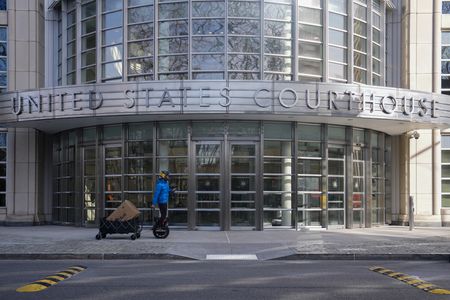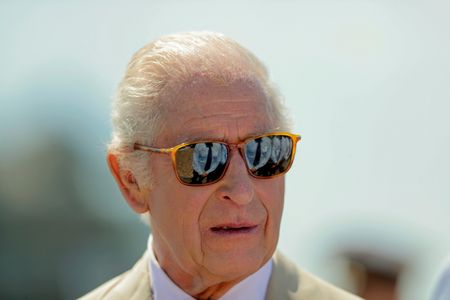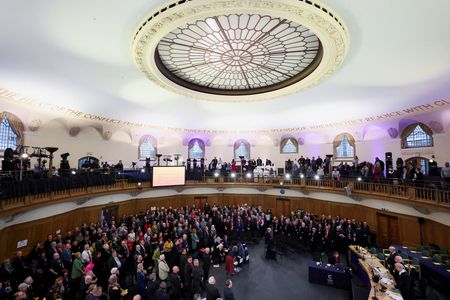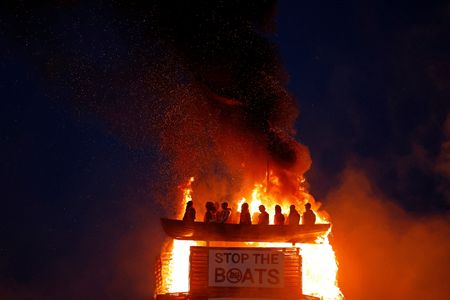By Pratima Desai
LONDON (Reuters) – The London Metal Exchange has told some of its committee members it will not ban Nornickel’s metal from its system as the company is not under UK sanctions even though Chief Executive Vladimir Potanin is, three sources familiar with the matter said.
Metal industry sources are worried a ban on Nornickel’s metals would again destabilise the LME nickel market.
Disorderly trade on March 8 led to the suspension of nickel trading for over a week and the cancellation of all trades on that day.
If sanctions were imposed on Nornickel the exchange would have to suspend its metal.
The LME banned aluminium produced by Rusal in 2018 when the U.S. Treasury Department imposed sanctions on the Russian aluminium giant.
“They aren’t going to do anything at this stage, they are within UK government guidelines,” one of the sources said.
Britain, along with Western allies, has been imposing sanctions on Russian elites, banks and strategic industries since Russia invaded Ukraine — but so far there are no sanctions on buying Russian metal.
The LME said on Friday it was continuing to assess the sanctions Britain imposed in June on Potanin, known as Russia’s “Nickel King”.
“We have been assessing the detail of the sanctions and what it may mean for the LME, its participants and Norilsk brands,” the LME said.
“This process is ongoing and we will update the market once we gain further clarity.”
Nornickel is a major producer of nickel and cobalt, both crucial materials for electric vehicle batteries.
It also produces copper valued for its electricity conducting properties. All three are approved for delivery against LME contracts.
The LME declined to say how much Nornickel metal is under LME warrant – a legal document that confers the right of metal ownership to the holder.
Russia supplies about 10% of the world’s nickel, 6% of its aluminium and around 3.5% of its copper.
A ban on Russian metal could lead to shortages and fresh price surges at a time of high inflation around the world.
Nickel prices have been rising since the start of the year due to strong demand and inventory draws.
Russia’s invasion of Ukraine on February 24 provided further momentum.
The surge to a record above $100,000 a tonne in disorderly trade on March 8, triggered by China’s Tsingshan Holding Group and others cutting their short positions, led the LME to suspend trading for more than a week.
The exchange also cancelled all nickel trades on March 8, for which it is being sued by U.S.-based hedge fund Elliott Associates and Jane Street Global Trading.
(Reporting by Pratima Desai; additional reporting by Eric Onstad; editing by David Evans)











